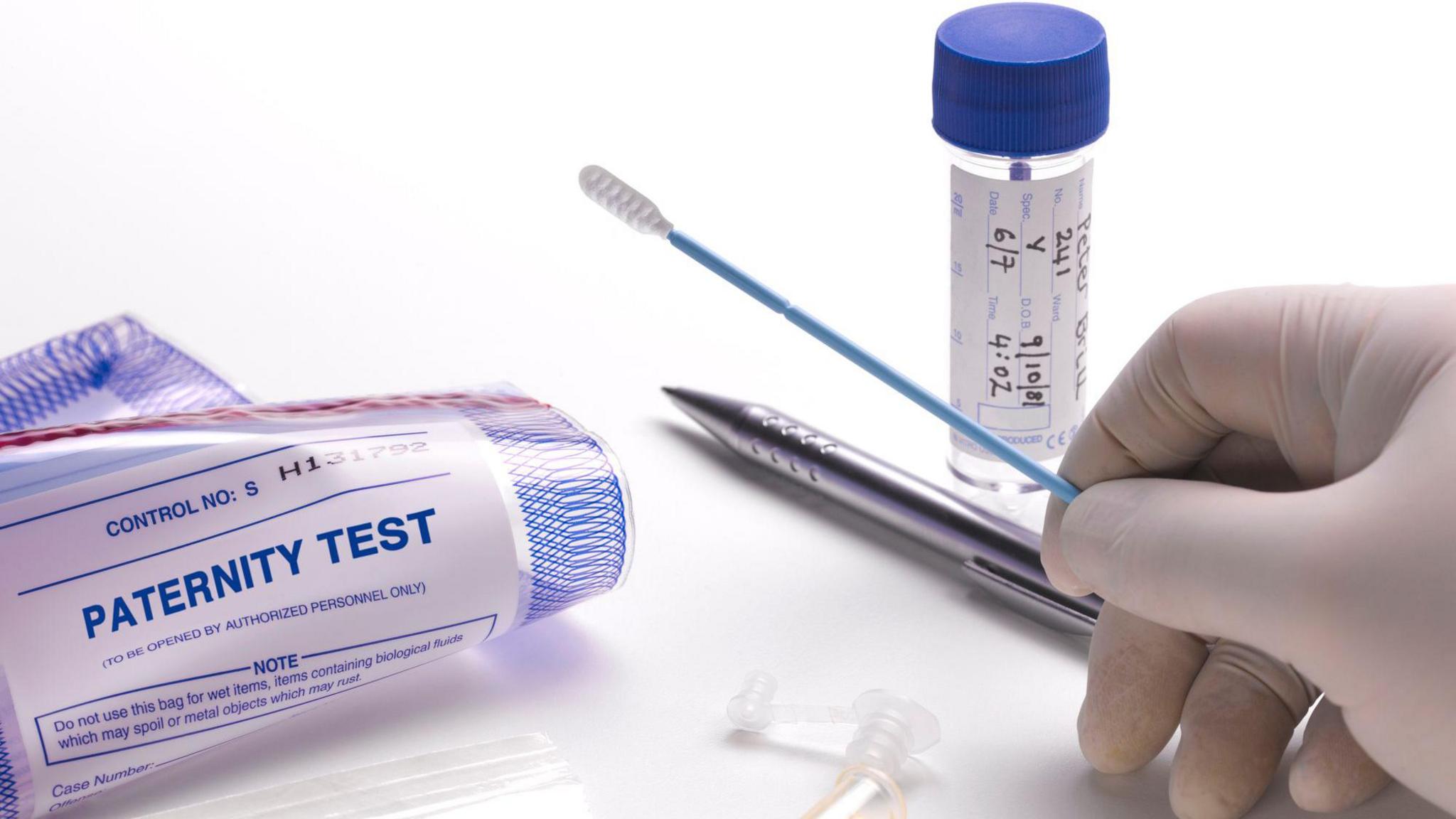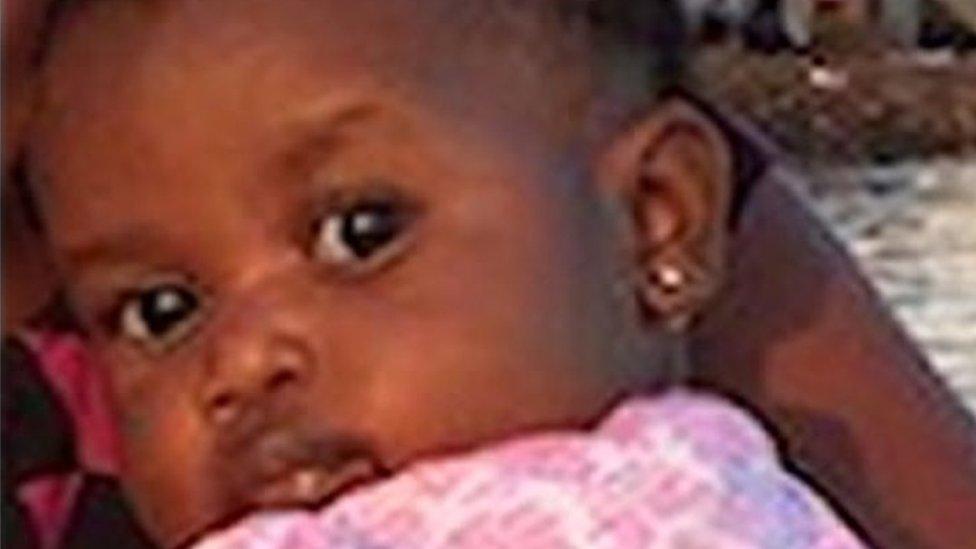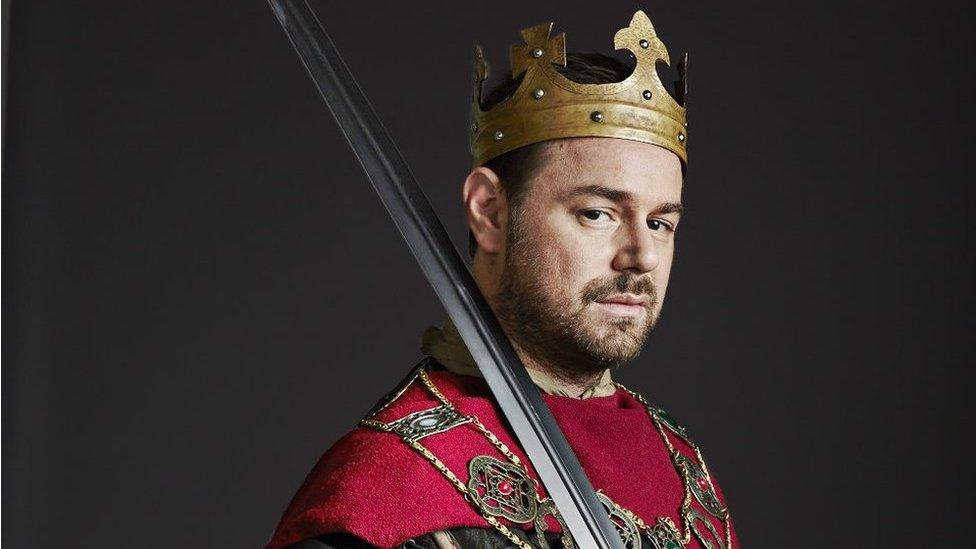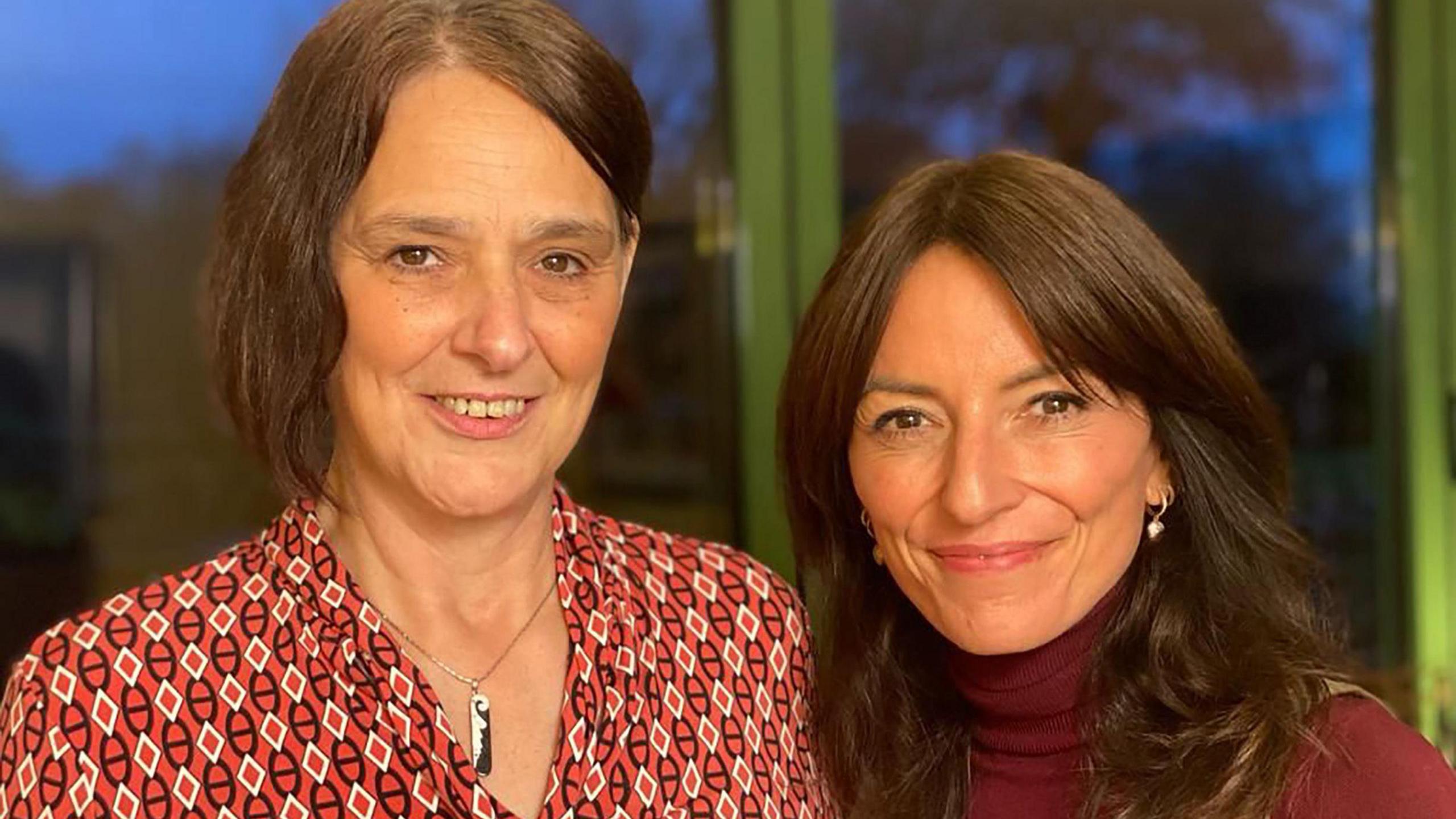'I took a DNA test - it blew my life apart'

One man says TV and genealogy companies romanticise family tracing
- Published
People whose family tracing did not go to plan are warning others about the risks, with one man saying he would not do it "if he had his time again".
Following his father's death in 2022, John from East Sussex said his wife bought him a family DNA testing kit as a Christmas present to cheer him up.
But when the results came back, he found out his dad was not his biological father and he was, in fact, the son of a family friend.
"I was devastated," John said. "It completely upended everything I thought I knew."
The 60-year-old said he felt "perversely lucky" since the parents involved had passed away, sparing him "difficult conversations".
But he added there was also "no-one to get answers from".
"My mother would have made an amazing poker player because she kept a straight face for 50 years," John continued. "No one had a clue."
'Dirty secret'
John said his newly discovered half siblings largely refused to speak to him, with one even becoming hostile when he approached them, though another provided him with medical history.
He had counselling over what happened - viewing himself as a "dirty secret" - but said he was now at peace.
John said TV programmes and genealogy companies "drive this theory that every outcome is good, that you'll find war heroes... or a suffragette, but lots of people don't."
He had seen cases of people discovering they were the result of rape, incest and "all sorts of horror stories", he said.
John added DNA testing kits should better warn about possible bad outcomes and urged people not to romanticise family tracing.
"In this day and age, you get warned about the salt level in your bacon... but people [can get] their whole lives [and] mental health blown apart," he said.
DNA testing kits generally warn about potentially life-altering outcomes either before purchase or when accessing results, although there have been calls to improve these warnings.

One expert said that most people would still rather know their family tracing even if it went wrong
Chrissie, from Surrey, said she was reunited with her sister Jennifer, who was forcibly put up for adoption, after 74 years.
She said her "darling" but "sneaky" daughter Kelly had tracked Jennifer down and arranged for them to speak over the phone.
"It was so surreal," Chrissie said. "We spoke as if we'd known each other for years."
Kelly then arranged a surprise meet between the pair.
"We just stood staring at each other," Chrissie said. "My goodness, it was like looking at my twin."
But, despite having a lovely time together, Chrissie said Jennifer later severed ties as their lives were "so different".
"Life isn't always a bed of roses," she told BBC Radio Sussex.
"But at least I have seen her. I wanted to know if she was alive, if she has family and what she was like... that can't be taken away.
"It's a happy ending to a story with a little sad twist."
'Never stop looking'
Chrissie said people searching for long-lost relatives should prepare to not get the outcome they want.
But she added: "Hold on to your dreams, never stop looking".
While in his experience the majority of experiences are positive, Mike Hancock, national strategic lead at PAC-UK, an organisation supporting adopted families, said tracing could be a "very, very complicated area because family secrets are buried extremely deep".
He urged people to seek support from friends, relatives and professional agencies before starting out.
He also recommended sending letters to newly discovered relatives through an intermediary, rather than contacting them directly as this could be shocking.
Mr Hancock said in his experience most people thought it was ultimately better to know than not, even if they uncovered difficult things.
"But it is still disturbing," he added.
Follow BBC Sussex on Facebook,, external X, external and Instagram., external Send your story ideas to southeasttoday@bbc.co.uk, external or WhatsApp us on 08081 002250.
Related topics
- Published6 July 2016

- Published14 November 2016

- Published25 June 2024
